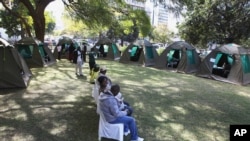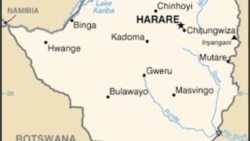Some Zimbabweans say they normally travel long distances to access health care in clinics and hospitals despite constitutional provisions compeling the government to provide this basic right to its citizens.
The southern African nation is facing serious socio-economic problems, a situation that has resulted in various challenges in health institutions, including critical shortages of drugs and manpower like doctors and nurses.
Villagers in Mutoko communal lands, Mashonaland East province, are among millions of people with little access to health care.
Chapter Four, Subsection 75 of Zimbabwe’s constitution clearly stipulates that every citizen and permanent resident has the right to have access to basic health-care services, including reproductive health-care services.
It states that the state must take reasonable legislative and other measures, within the limits of the resources available to it, to achieve the progressive realization of the rights set out in this section.
However, contrary to this, most people in Zimbabwe, including Mutoko communal lands, have been struggling to access health care since independence from British rule in 1980.
Indications are that the health sector in the country is deteriorating at alarming rates with some hospitals having an unprecedented patient-doctor ratio of 1:12,000 compared to the 1:200 prescribed by the United Nations.
Mutoko villager, Tapfumaneyi Gubede, is among thousands of people in the district who have to travel long distances to get health care at Karanda Mission Hospital in Mt. Darwin.
“This side there are no specialist doctors and all those who need to go into the theatre have to travel to hospitals like Parirenyatwa. Another problem is the failure to acquire drugs. People pay a $5 fee for cards at clinics but there are no drugs. The clinic just writes a prescription and you are supposed to purchase the drugs from a pharmacy. Most people die because they do not have money.”
Another local resident, Phillip Muyengwa, says though the government constructed many clinics in rural areas just after independence in 1980, most of the structures are now white elephants due to lack of manpower and drugs.
“Access to health is still a challenge here in Mutoko. Even though the right to health is enshrined in the constitution, we have realized that a lot of people are failing to access health facilities. We do not have specialist doctors and drugs. People that need specialist doctors have to travel to Karanda Mission Hospital to get health care.”
For Maria Mashangwe, the health sector in the country is deteriorating instead of improving.
“Access to health is really difficult. People are dying from curable diseases. Our clinics here do not even have stop pains like paracetamol. All they are giving now are prescriptions but we do not have money to buy the drugs at pharmacies. The rights in the constitution are only there on paper not for us rural folks.”
In 1985, the World Health Organization declared that the Zimbabwean healthcare system was among the best in the developing world. However, indications are that most of the gains after independence have been reversed by lack of manpower and general poor management.
Health Minister David Parirenyatwa was not reachable for comment.






